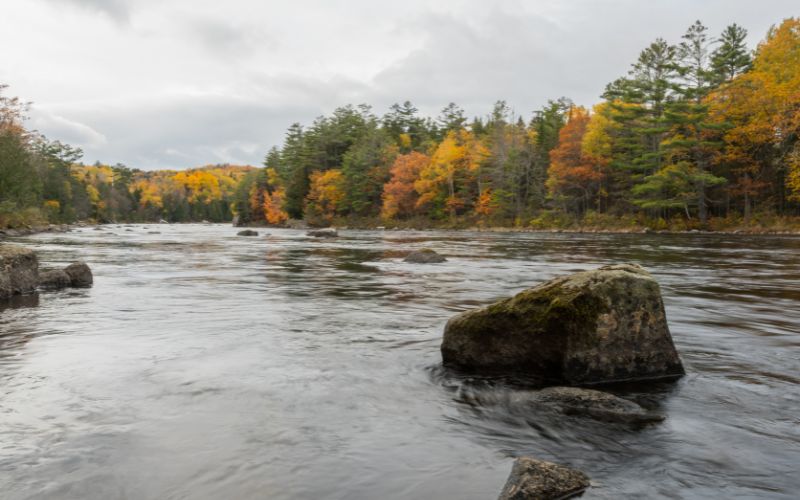
- Details
- By Native News Online Staff
The Penobscot Nation has plans to reclaim more than 30,000 acres of their homeland in Maine from a national nonprofit Trust for Public Land (TPL), according to a press release from the organization.
The transfer will put the acreage— taken from the Penobscot Nation in the nineteenth century in the Katahdin region of Maine— back into tribal stewardship, the nonprofit said. TPL purchased the land when it went up for sale in 2022.
“We are very excited to work with TPL towards this common goal of returning a portion of unceded lands back to the governance of the Penobscot Nation,” said Penobscot Nation Chief Kirk Francis in a statement. “We are also ecstatic for the opportunity to explore and improve the aquatic and wildlife habitat within this parcel to conserve more land in the Katahdin region for our future generations.”
The 31,367 acres going back to the Nation sit within the Penobscot River watershed and include forests, recreational trails, wetlands, and more than 50 miles of streams.
The nonprofit and tribe will work together to: re-establish the Penobscot Nation as legal stewards of the land, create public access to the southern portion of the land, and boost local economies through the creation of public access, TPL said.
Trust for Public Land President and CEO Diane Regas said the land back announcement isn’t “just an isolated act, but a deep acknowledgment and reaffirmation of a timeless bond, a rich history, and a promising future.”
As we collaborate with the Penobscot Nation, the National Park Service, and local communities, we are driven by a shared vision: to honor and help restore the rich tapestry of Wabanaki connection to land and ensure that Katahdin Woods and Waters National Monument can be accessed and enjoyed by all."
More Stories Like This
NCAI Passes Two Emergency Resolutions on Immigration Enforcement ActivitiesChickasaw Lighthorse Police Officer named Indian Country Law Enforcement Officer of the Year
Indian Gaming Association Rallies Broad Coalition Against Sports Event Contracts It Calls Illegal Threat to Tribal Sovereignty
Navajo Resources and Development Committee Issues Notice on Livestock Inspection Requirements
American Prairie, Tribal Coalition Files Protest Over Rescinded Grazing Rights
Help us defend tribal sovereignty.
At Native News Online, our mission is rooted in telling the stories that strengthen sovereignty and uplift Indigenous voices — not just at year’s end, but every single day.
Because of your generosity last year, we were able to keep our reporters on the ground in tribal communities, at national gatherings and in the halls of Congress — covering the issues that matter most to Indian Country: sovereignty, culture, education, health and economic opportunity.
That support sustained us through a tough year in 2025. Now, as we look to the year ahead, we need your help right now to ensure warrior journalism remains strong — reporting that defends tribal sovereignty, amplifies Native truth, and holds power accountable.
 The stakes couldn't be higher. Your support keeps Native voices heard, Native stories told and Native sovereignty defended.
The stakes couldn't be higher. Your support keeps Native voices heard, Native stories told and Native sovereignty defended.
Stand with Warrior Journalism today.
Levi Rickert (Potawatomi), Editor & Publisher


